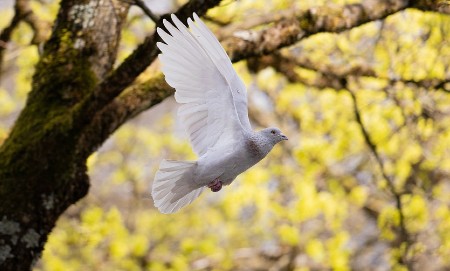Pope: Nature is a 'book whose author is God'
FREE Catholic Classes
In an address to the Pontifical Academy of Science Pope Benedict XVI quotes a passage dear to Galileo.
Highlights
VATICAN CITY (AsiaNews) - "Galileo saw nature as a book whose author is God." However, despite "elements of the irrational, chaotic and the destructive," there are "intelligible events" that refer to the "foundational presence of the author" that has not "only to do with the beginning of the history of the world and of life" but "implies, rather, that the Creator founds these developments and supports them, underpins them and sustains them continuously."
In an address today to the plenary assembly of the Pontifical Academy of Sciences, Benedict XVI looked at the relationship between faith and evolution. In it he began by saying that science and Christianity are not in contradiction, explaining for instance that "Pope Pius XII and Pope John Paul II noted that there is no opposition between faith's understanding of creation and the evidence of the empirical sciences."
Thus, the image "of nature as a book has its roots in Christianity and has been held dear by many scientists. Galileo saw nature as a book whose author is God in the same way that Scripture has God as its author. It is a book whose history, whose evolution, whose 'writing' and meaning, we 'read' according to the different approaches of the sciences, while all the time presupposing the foundational presence of the author who has wished to reveal himself therein."
"This image also helps us to understand that the world, far from originating out of chaos, resembles an ordered book". In effect, "[n]otwithstanding elements of the irrational, chaotic and the destructive in the long processes of change in the cosmos, matter as such is 'legible'. It has an inbuilt 'mathematics'. The human mind therefore can engage not only in a 'cosmography' studying measurable phenomena but also in a 'cosmology' discerning the visible inner logic of the cosmos."
"We may not at first be able to see the harmony both of the whole and of the relations of the individual parts, or their relationship to the whole. Yet, there always remains a broad range of intelligible events, and the process is rational in that it reveals an order of evident correspondences and undeniable finalities: in the inorganic world, between microstructure and macrostructure; in the organic and animal world, between structure and function; and in the spiritual world, between knowledge of the truth and the aspiration to freedom."
This, according to Benedict XVI, shows how "experimental and philosophical inquiry gradually discovers these orders; it perceives them working to maintain themselves in being, defending themselves against imbalances, and overcoming obstacles. And thanks to the natural sciences we have greatly increased our understanding of the uniqueness of humanity's place in the cosmos."
Finally, quoting John Paul II, the Pope concluded, saying that "scientific truth, which is itself a participation in divine Truth, can help philosophy and theology to understand ever more fully the human person and God's Revelation about man, a Revelation that is completed and perfected in Jesus Christ."
Join the Movement
When you sign up below, you don't just join an email list - you're joining an entire movement for Free world class Catholic education.
-

-
Mysteries of the Rosary
-
St. Faustina Kowalska
-
Litany of the Blessed Virgin Mary
-
Saint of the Day for Wednesday, Oct 4th, 2023
-
Popular Saints
-
St. Francis of Assisi
-
Bible
-
Female / Women Saints
-
7 Morning Prayers you need to get your day started with God
-
Litany of the Blessed Virgin Mary
A Future for Life: Introducing the Winners of the Priests for Life Pro-Life Essay Contest
-

Reflections on Pope Francis' 2025 World Day of Peace message
-

Exposing the Dark Reality of Sex Trafficking
-
Trump's Bold Geopolitical Moves: A Call for Reflection from a Catholic Perspective
-
Pope Francis Calls for Action Against Child Exploitation and Abuse
Daily Catholic
 Daily Readings for Friday, January 10, 2025
Daily Readings for Friday, January 10, 2025 St. William of Bourges: Saint of the Day for Friday, January 10, 2025
St. William of Bourges: Saint of the Day for Friday, January 10, 2025 Prayer for a Blessing on the New Year: Prayer of the Day for Tuesday, December 31, 2024
Prayer for a Blessing on the New Year: Prayer of the Day for Tuesday, December 31, 2024- Daily Readings for Thursday, January 09, 2025
- St. Adrian, Abbot: Saint of the Day for Thursday, January 09, 2025
- St. Theresa of the Child Jesus: Prayer of the Day for Monday, December 30, 2024
![]()
Copyright 2024 Catholic Online. All materials contained on this site, whether written, audible or visual are the exclusive property of Catholic Online and are protected under U.S. and International copyright laws, © Copyright 2024 Catholic Online. Any unauthorized use, without prior written consent of Catholic Online is strictly forbidden and prohibited.
Catholic Online is a Project of Your Catholic Voice Foundation, a Not-for-Profit Corporation. Your Catholic Voice Foundation has been granted a recognition of tax exemption under Section 501(c)(3) of the Internal Revenue Code. Federal Tax Identification Number: 81-0596847. Your gift is tax-deductible as allowed by law.






 Daily Readings for Friday, January 10, 2025
Daily Readings for Friday, January 10, 2025 St. William of Bourges: Saint of the Day for Friday, January 10, 2025
St. William of Bourges: Saint of the Day for Friday, January 10, 2025 Prayer for a Blessing on the New Year: Prayer of the Day for Tuesday, December 31, 2024
Prayer for a Blessing on the New Year: Prayer of the Day for Tuesday, December 31, 2024


